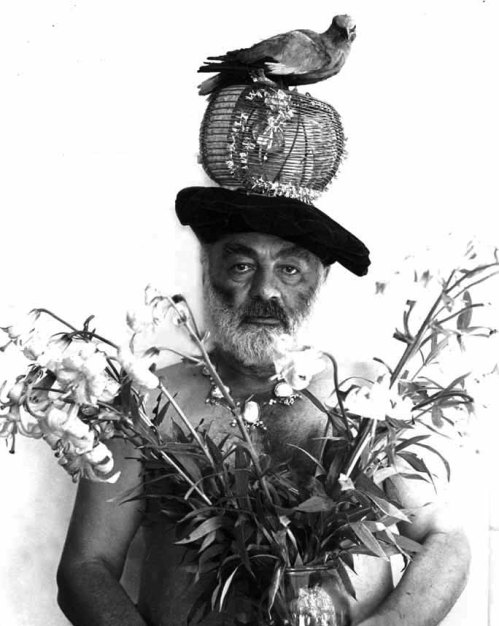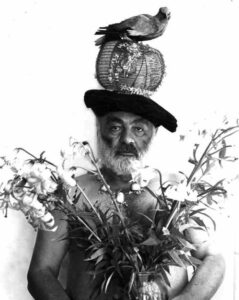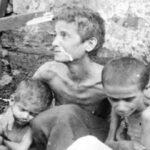
Previously we left Daniel secretly selling bread to starving children against the wishes of his master.
FROM DANIEL’S DIARY
50- ‘The unparalleled greed of my master’
‘There are many episodes confirming the heartlessness of my master. Here is one. One afternoon during the famine, an old Armenian refugee woman brought four balls of dough consisting of bran fit only as cattle feed. She asked my master to have it baked offering to pay for it with all the money she had which came to one “metalic” (maybe a tenth of a cent). My master insisted on two “metalics”. When she wept and explained that she had no more money, he finally agreed but after some argument. Then he took the 4 balls of dough of bran, brought them to us the workers, turned his back to the woman to obstruct her view, cut with his fingers a little from each ball and told me to take in the cuttings and throw them onto our own dough in the tanks. He did this to an old Armenian woman who was starving, at a time when he was taking home every evening a large pile of coins, the cash of the day’.
51- ‘My master and Ahmed the grocer’
The Barmaksiz bakery was in the middle of the street called Ayib Oghlu in a corner next to it was Ahmed’s grocery. Ahmed was friendly in general but occasionally would threaten my master to report him to the government for sheltering a refugee/deportee, that was myself. So it was very important to placate him, and yet my master’s stinginess led him to petty thefts which if discovered could have irritated Ahmed and cost him very much. My master ate his meals at the cashier seat. He had in his hand a long stick with a sharp iron hook at its top. This tool was used for pulling toward him the fresh loaves of bread as they came out of the oven and arranging them on the floor in front of him. At meal’s time he would watch Ahmed and at a time when Ahmed looked the other way he would with his hook catch a tomato or a green pepper and eat it with his meal.
Re-reading these entries felt like watching an Armenian version of Oliver Twist. The descriptions of the baker, the grocer and the gambler are Dickensian to say the least. Having studied film and worked in advertising and television, my first impulse is more towards the visual and less about the written. As a film student I was heavily influenced by the works of Andrei Tarkovsky, a Russian filmmaker and the great Armenian filmmaker Parajanov who made poetic cinema and interestingly enough, it was my love for this type of films that took me to Armenia the first time. One year, I went to an Armenian ball in London and I happen to sit next to a man called Armen Sarkissian, who was the Chargé D’Affaire of the Armenian Embassy in London at that time and later became the Armenian Prime Minister. One conversation led to another and it turned out that we had Tarkovsky and Parajanov in common and before I knew it, I was on a plane to Armenia making short promotional films to help raise funds for projects that benefited the under-privileged in Armenia. Mr. Sarkissian sowed the seeds that would eventually blossom into me doing voluntary work with handicapped and underprivileged children in places that now remind me so much of the ones in this chapter of Daniel’s diary.
FROM DANIEL’S DIARY
52-‘ A case of heartlessness’
‘As I have mentioned elsewhere during the years 1916-1917, I do not know exactly for how long but there was a real famine in Aintab. Bread was the most precious commodity people wanted, no matter of what quality. To obtain it they had to pay a high price, and wait for hours. In those days in Aintab people had no idea about queuing; so we would have a crowd of about 100 people pushing each other, jostling, shouting, cursing and fighting to get to the counter and buy some bread at our bakery. Nobody had time to think of the quality of bread they were getting from us. Many foreign materials had been introduced in the dough purposely and as a result of carelessness. One ever-present foreign material in our bread were worms. It was on such an occasion when my master took two piasters from a poor helpless woman to weigh and give her some bread. Then he pretended to have forgotten about it and began to attend to other customers. The woman wept and begged to have her bread my master denied that he had taken money from her.
N.B.: 1) I must confess that I cannot be sure that my master really took the money but knowing him and seeing the helplessness of the woman, I am inclined to believe her.
2) Another thing that is remarkable is that although there was a large crowd, nobody would champion the cause of that poor woman. She was pushed aside by other customers and her voice was drowned in the din of the crowd’.
To be continued..
Menak Parov..See you next Wednesday




0 Comments